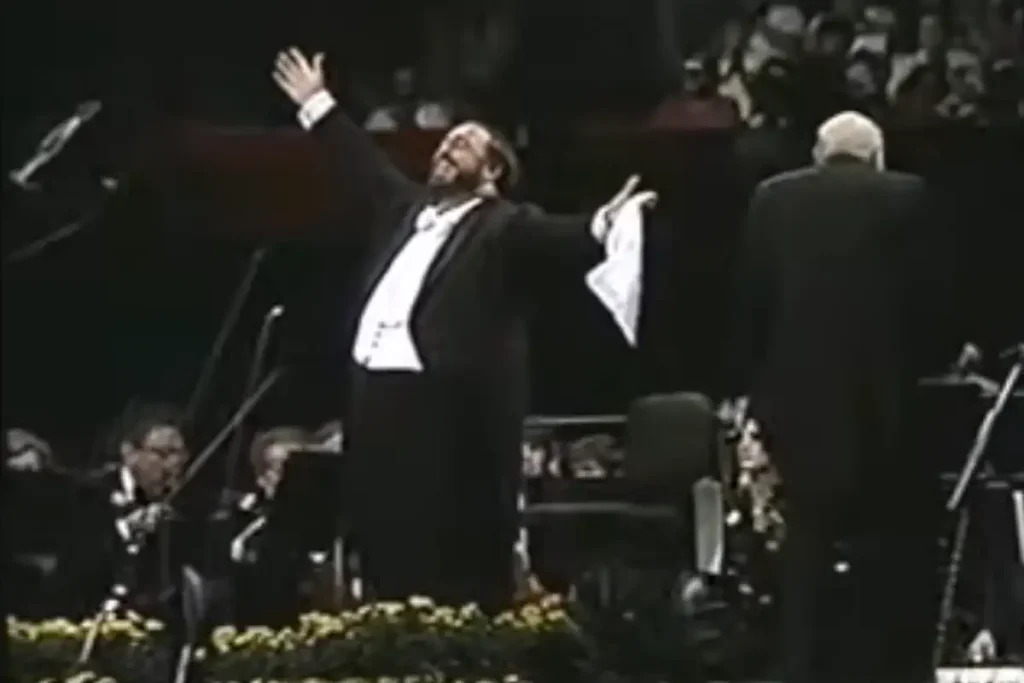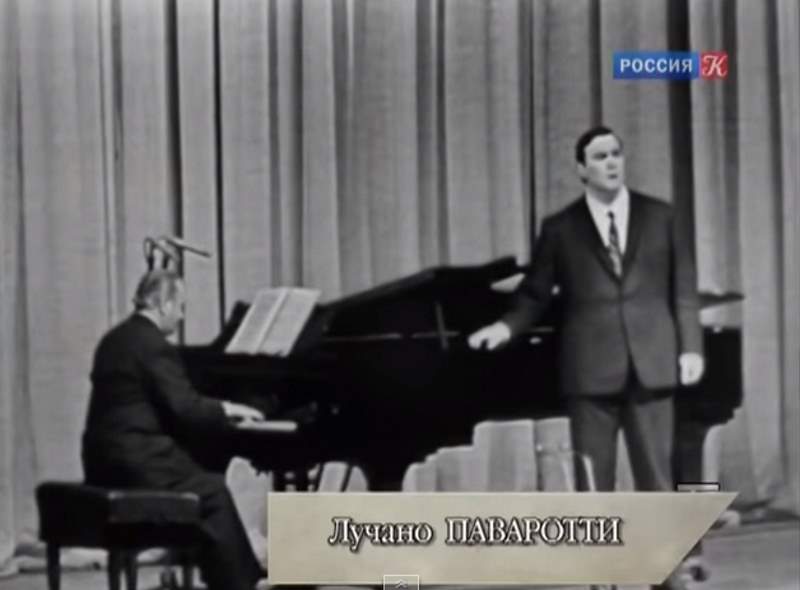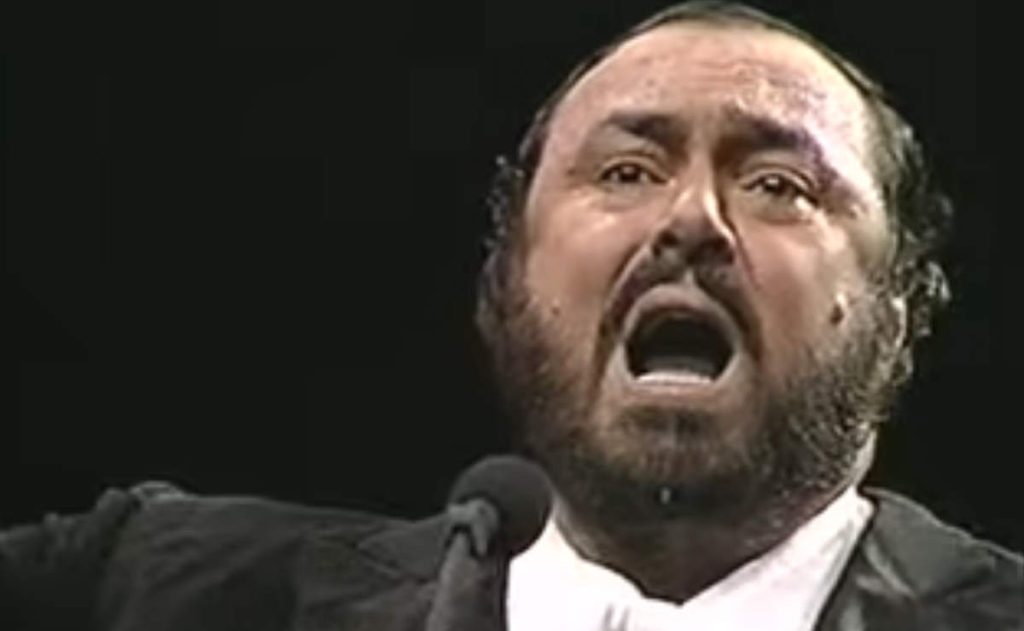Legendary Italian tenor Luciano Pavarotti sings La donna è mobile, one of the most famous and recognizable arias from the world of opera. Recorded during a concert at the Madison Square Garden, New York, in 1987. New Jersey Symphony Orchestra conducted by Emerson Buckley.
La Donna è Mobile
La donna è mobile is the aria that the Duke of Mantua (tenor) sings in the third and last act of Rigoletto by Giuseppe Verdi (1851).
It is one of the most popular operatic pieces, due to its extreme catchiness and dancing accompaniment. It is said that Verdi had forbidden its diffusion before the opera went on stage, at the Teatro La Fenice in Venice, in order not to spoil the effect.
In reality, La donna è mobile is music to be listened to in its dramaturgical context. Her trivial character reflects the place, the slums of the city of Mantua, and the situation. With superficial lightness, perfectly embodied by the music, the duke reflects on his personal vision of feminine emptiness and inscrutability, where the woman is seen as a feather in the wind, susceptible to changes both in thoughts and in words at the first change of mood and course of events. In fact, he is preparing to meet a woman on the street: Maddalena, sister of Sparafucile, the assassin commissioned by Rigoletto to kill him.
After the first exposition, in complete form in two stanzas, the meaning of the aria is fully revealed in the two subsequent returns. The first takes place as the Duke climbs the stairs of Sparafucile’s house to go and doze off in the barn, waiting for Maddalena to join him. The piece is only hummed, revealing itself for what it really is, that is a song that the Duke enjoys singing (that is what musicologists define as incidental music).
The fragments of melody that the Duke omits here and there are intoned by the clarinet, which in this way gives us the image of his thought which continues to follow the melody even when the voice does not intonate it. Even more interesting is the last occurrence, after Sparafucile, at Magdalene’s insistent request, killed a traveler (in fact Rigoletto’s daughter, dressed as a man) in place of the Duke.
Neither they nor Rigoletto know what has happened, indeed Rigoletto believes that the body that the assassin gave him in a sack is that of his master and lord and triumphantly prepares to throw it into the river Mincio.
It is precisely at this point that the protagonist hears the voice of the Duke who, from afar, sings the usual song and La donna è mobileit reveals itself for what it is: a masterpiece of tragic irony, since only the trivial character of the music allows it to clash with such force in the dramaturgical context.
It should be noted that only on this last occasion does Verdi prescribe the high but slow finale, “little by little getting lost in the distance”, to underline the effect of the mockery.

Related: Pavarotti sings La Donna è Mobile
La Donna è Mobile lytics [text]
Italian
La donna è mobile
Qual piuma al vento,
muta d’accento
e di pensiero.
Sempre un amabile,
leggiadro viso,
in pianto o in riso,
è menzognero.
Refrain
La donna è mobile.
Qual piuma al vento,
muta d’accento
e di pensier’!
È sempre misero
chi a lei s’affida,
chi le confida
mal cauto il core!
Pur mai non sentesi
felice appieno
chi su quel seno
non liba amore!
Refrain
La donna è mobil’
Qual piuma al vento,
muta d’accento
e di pensier’!
English (Prosaic translation)
Woman is flighty.
Like a feather in the wind,
She changes in voice
and in thought.
Always a lovely,
pretty face,
in tears or in laughter,
It’s untrue.
Refrain
The woman is flighty.
like a feather in the wind,
She changes in voice
and in thought!
Always miserable
Is he who trusts her,
he who confides in her
his unwary heart!
Yet one never feels
fully happy
Who from that bosom
does not drink love!
Refrain
The woman is flighty.
Like a feather in the wind,
She changes her words,
and her thoughts!
English (Poetic translation)
Plume in the summerwind
Waywardly playing
Ne’er one-way swaying
Each whim obeying;
Thus the heart of womankind
Ev’ry way bendeth,
Woe who dependeth
On joy she spendeth!
Refrain
Yes, the heart of a woman
Ev’ry way bendeth
Woe who dependeth
On joy she spends.
Sorrow and misery
Follow her smiling,
Fond hearts beguiling,
falsehood assoiling!
Yet all felicity
Is her bestowing,
No joy worth knowing
Is there but wooing.
Refrain
Yes, the heart of a woman
Ev’ry way bendeth
Woe who dependeth
On joy she spends.

Sources
- Rigoletto on Wikipedia


Wow! What an amazing performance by Pavarotti! I can’t believe he was able to belt out La Donna Mobile at the Madison Square Garden in 1987. It’s a shame that he passed away so young, but his